Home Regulators


FSA
Who is the Seychelles FSA?As the Seychelles has become an increasingly popular destination for offshore financial services and capital markets companies, the Seychelles Financial Services Authority (FSA Seychelles) has taken on an increasingly prominent role within the non-bank financial services sector.Established under the Financial Services Authority Act, 2013, FSA is responsible to license, regulate, enforce regulatory and compliance requirements, monitor and supervise the conduct of business in the non-bank financial services sector in the Seychelles. These regulated activities include fiduciary services, capital market & collective investment schemes, insurance, and gambling. FSA is also responsible for the registration of international business companies, foundations, limited partnership and international trust in the Seychelles.How does the Seychelles FSA regulate a forex broker?1. Safety of Client Funds:The Minister may, on the recommendation of the Securties Authority, make regulations with respect to the segregation and safekeeping of clients' money or securities held by licensees on behalf of clients.2. Requirement on Forex Brokers' Reports:Transaction Reports; Audit Reports; Clients Funds Reports; Anti-laundering Reports.

Danish FSA
Who is the Danish FSA?The Danish FSA, also known as the Finanstilsynet, is the regulatory agency for the supervision and licensing of financial entities in Denmark.It was created in 1988 following the merger of the Insurance Supervisory Authority and the Supervisory Authority for Banks and Savings Banks. It had more responsibilities added to its remit when it took over from the Supervisory Authority for Mortgage Credit Institutions in 1990.The Danish FSA is responsible for the smooth functioning majority of Denmark’s financial system, which includes banks, securities markets, money brokers, payment systems, stock exchanges, insurance, pensions, fund management, investment companies, auditors, and all financial market participants that deal with the financial system of the country. Forex brokers, CFD dealers, and businesses that provide a multitude of OTC products come under the direct regulation of the Danish FSA.How does the Danish FSA regulate a forex broker?1. Safety of Client Funds:An investment firm shall, when holding funds belonging to clients, make adequate arrangements to safeguard the rights of clients and, except in the case of credit institutions, prevent the use of client funds for its own account.2. Requirement on Forex Brokers' Reports:Audit Reports; Anti-money laundering Reports.
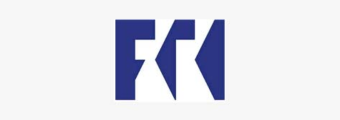
FKTK
Who is the FKTK?The Financial and Capital Market Commission of Republic of Latvia (FKTK) commences its activities in 2001. FKTK is an autonomous public institution, which carries out the supervision of Latvian banks, credit unions, insurance companies and insurance brokerage companies, participants of financial instruments market, as well as private pension funds, payment institutions and electronic money institutions.FKTK supervises provision of currency exchange (FOREX) services, which are not performed for commercial purposes and have following characteristics – an initial security deposit in advance of a transaction is required, expected transaction settlements are net cash settlements, the investor’s financial results depend on the currency exchange rate fluctuations.FKTK ensures enhancing stability, competitiveness and development of the financial and capital markets as well as protection of the interests of investors, depositors and insured persons.Its mission is to take care for the public interests by regulating and monitoring the functioning of the financial and capital markets, by protecting the interests of investors, depositors and the insured persons, including financial literacy, the development and stability of the financial and capital markets.How does the FKTK regulate a forex broker? 1. Safety of Client Funds:Brokers are required to put clients funds into segregated accounts.2. Requirement on Forex Brokers' Reports:Annual Audit Reports; Daily Transaction Reports.

PFSA
Who is the PFSA?The Polish Financial Supervision Authority (PFSA) is the financial regulatory authority for Poland. The PFSA was formed on 19 September 2006 pursuant to the Financial Market Supervision Act of 21 July 2006.The PFSA supervises the banking, capital, insurance and pension sectors, payment institutions and payment service offices, electronic money institutions and credit unions. It monitors brokerage services on the OTC derivatives market provided by investment firms to clients. The purpose of supervision of the financial market is to ensure its proper functioning, stability, security and transparency, confidence in the financial market, and to ensure that the interests of market participants are protected.How does the PFSA regulate a forex broker?1. Safety of Client Funds:Brokers are required to put clients funds into segregated accounts.2. Requirement on Forex Brokers' Reports:Annual Audit Reports; Daily Transaction Reports.
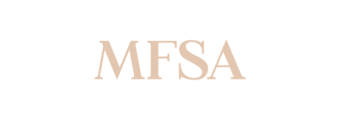
MFSA
Who is the MFSA?Malta is an ideal destination for businesses to expand presence and is considered to be a promising financial center in Europe.The Malta Financial Services Authority (MFSA) is an autonomous financial regulator overseeing the financial industry in Malta since 2002. It boasts a reputation of well-developed infrastructure and framework, as well as for the sophistication of its financial market.The MFSA supervises the financial behavior of all the licensed Forex Brokerage Firms, Credit institutions, Insurance and Pension Companies, Financial Advisors, Banks, Stock Exchange, and all the related firms that play a role in the entire Maltese Market.Investor protection is the primary concern for MFSA, and the agency has created several departments to help consumers report any cases of financial abuses or broker scams. How does the MFSA regulate a forex broker?Requirement on Forex Brokers' Reports:Transaction Reports; Audit Reports; Clients Funds Reports; Anti-money laundering Reports.

AMF
Who is the AMF?The Financial Authority (Autorité des Marchés Financiers, AMF) and the Prudential Authority (Autorité de Contrôle Prudentiel et de Résolution, ACPR) are the primary financial regulators in France. In its capacity as the stock market regulator, the AMF is responsible for the supervision of financial markets and investment firms. The ACPR, an independent administrative authority under the central bank, the Banque de France, supervises the banking and insurance sectors. France is an EU member state, and financial regulations and operations in France comply with the European MiFID financial harmonization law.How does the AMF regulate a forex broker?1. Safety of Client Funds:Clients funds should be put into segregated accounts.2. Requirement on Forex Brokers' Reports:Audit Reports; Anti-money laundering Reports.
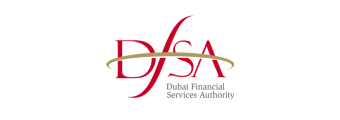
DFSA
Who is the DFSA?Dubai is the capital of the Emirate of Dubai and has become a global city and business hub for the Middle East. In 2004, a special economic zone is located in the city known as the Dubai International Financial Centre (DIFC). Then a financial regulatory agency of the zone called the Dubai Financial Services Authority (DFSA) came into existence. Notably, the jurisdiction of DFSA covers only the territory of the Dubai International Financial Centre, providing a regulatory environment of international standards. The DFSA's regulatory mandate includes asset management, banking and credit services, securities, collective investment funds, custody and trust services, commodities futures trading, Islamic finance, insurance, an international equities exchange, and an international commodities derivatives exchange. In addition to regulating financial and ancillary services, the DFSA is responsible for supervising and enforcing anti-money laundering (AML) and counter-terrorist financing (CTF) requirements applicable in the DIFC. Dubai only allows DFSA Forex brokers to conduct financial activities in the entire UAE. However, Dubai does offer an opportunity for investors to set up a business in DIFC for providing services to a global audience. Therefore, it is possible for brokers to set up their brokerage in Dubai without being regulated by the DFSA. In such an instance, investors are not protected by any regulatory laws or supervisions that are usually available with DFSA regulated broker. Consequently, several investors had faced problems with Dubai-based brokers and were victims of numerous frauds and financial scams. It should be mentioned that the problem only exists with non-regulated brokers, as all DFSA regulated Forex brokers do not indulge in any scams due to regulatory backlash from the DFSA and authorities. How does the DFSA regulate a forex broker?1. Safety of Client Funds:Companies shall open segregated accounts.2. Requirement on Forex Brokers' Reports:Transaction reports; Audit reports; Clients Assets Reports; Anti-money laundering Reports.

CNMV
Who is the CNMV?The National Securities Market Commission (Spanish: Comisión Nacional del Mercado de Valores) (often abbreviated as CNMV) is the Spanish government agency responsible for the financial regulation of the securities markets in Spain. It is an independent agency that falls under the Ministry of Economy. CNMV is responsible for the oversight and regulation of the capital markets sector of the Spanish financial services industry. The site contains information on the markets, listed companies, and investment firms. This resource is available in Spanish with a limited English translation. Spain is an EU member state, and CNMV's financial regulations and operations comply with the European MiFID financial harmonization law.How does the CNMV regulate a forex broker?1. Safety of Client Funds:Clients funds should be put into segregated accounts.2. Requirement on Forex Brokers' Reports:Investment firms and credit institutions are required to report to CNMV complete and accurate details of transactions in financial instruments as soon as possible or no later than the close of the next business day. They also need to deliver annual audit reports as well as anti-laundry reports.
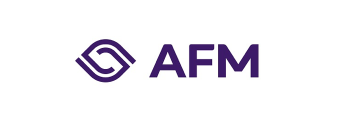
AFM
Who is the AFM?The Dutch Authority for the Financial Markets (AFM) has been responsible for supervising the operation of the financial markets since 1 March 2002. This means that AFM supervises the conduct of the entire financial market sector: savings, investment, insurance, loans, pensions, capital markets, asset management, accountancy and financial reporting. AFM takes national measures mirroring ESMA’s product intervention measures: AFM will prohibit Binary Options and restrict the marketing, distribution or sale of CFDs to retail investors.These measures are applicable to investment firms based in The Netherlands as well as to investment firms from another EU member state active in The Netherlands through a branch or by means of the European pass porting regime. AFM is committed to promoting fair and transparent financial markets. As an independent market conduct authority, it contributes to a sustainable financial system and prosperity in the Netherlands.How does the AFM regulate a forex broker?1. Safety of Client Funds:Clients funds should be put into segregated accounts.2. Requirement on Forex Brokers' Reports:Annual Audit Reports.3. Regulatory Framework:Market Finance Regulation.

Bulgaria FSC
Who is the FSC?Bulgaria Financial Supervision Commission (FSC) was established on March 1st, 2003 under the Financial Supervision Commission Act. It is an institution that is independent from the executive authority and reports its activity to the National Assembly of the Republic of Bulgaria. FSC is a specialized government body for regulation and control over different segments of the financial system – capital market, insurance market, health insurance market, pension insurance market.FSC regulates CFDs. Bulgaria is an EU member state, and FSC's financial regulations and operations comply with the European MiFID financial harmonization law.The primary mission of the institution is to assist through legal, administrative and informational means for the maintenance of stability and transparency on the non-banking financial sector, and to ensure the protection of the consumers of financial services and products.How does the FSC regulate a forex broker?The Regulatory Framework:The Law on The Markets of Financial Instruments.Since Bulgaria is a member of the European Union, most of the regulations refer to, or directly follow, EU financial markets law.
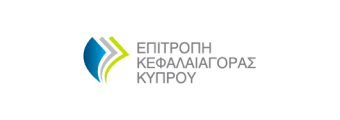
CySEC
Who is the CySEC?The Cyprus Securities and Exchange Commission, better known as CySEC, is the financial regulatory watchdog of Cyprus. CySEC came into the Forex scene as early as 2001.Cyprus joined the European Union in 2004, and as an EU member state, CySEC's financial regulations and operations comply with the European MiFID financial harmonization law.Cyprus is one of the most attractive regions in Europe to set up a forex company, due to its advantageous fiscal and tax structure. CySEC regulated brokers have elicited a mixed response from the Forex markets, and as far as retail traders are concerned, you either love them or you hate them. The country witnessed an exponential growth in the number of Forex brokers and soon became a breeding ground for scams and financial malpractices that ultimately diminished the country’s efficiency in dealing with broker irregularities. The CySEC was also notorious for letting companies off with no penalties or simple warnings, even for larger financial crimes, as the country did not want to alienate its investors from shutting down shop and taking their business elsewhere. The lack of a strict regulatory regime did affect the CySEC in advertising its potential as a credible regulatory authority.How does the CySEC regulate a forex broker?1.Safety of Client Funds:CySEC asks CIFs/forex brokers put clients funds into segregated accounts. The brokers must, upon receiving any client funds, promptly place those funds into one or more accounts opened with any of the following entities:a. central bankb. credit institution as defined in article 2(1) of the Business of Credit Institutions Lawc. bank authorised in a third countryd. qualifying money market fund2. Requirement on Forex Brokers' Initial Capital:An initial share capital of at least €200,000At least €750,000 in operating capital3. Requirement on Forex Brokers' Reports:Cyprus forex brokers are asked to provide transactions reports, audit reports, client funds reports and anti-money laundering reports to CySEC.

IIROC
Who is the IIROC?Canada is not a popular venue for non-resident Forex traders due to its tough regulatory regime and very small number of Forex brokers. Forex brokers in Canada are regulated by the Investment Industry Regulatory Organization of Canada (IIROC). Notably, IIROC is a non-profit, national self-regulatory organization which is established through the merger of the Investment Dealers Association of Canada (IDA) and Market Regulation Services Inc. (RS) on June 1, 2008.The role of IIROC is to oversee all investment dealers and trading activity on debt and equity marketplaces in Canada.The organization sets regulatory and investment industry standards and has quasi-judicial powers in that it holds enforcement hearings and has the power to suspend, fine and expel members and registered representatives, such as advisors. However, it has often been criticized by investor advocates as ineffective.How does the IIROC regulate a forex broker?1. Safety of Client Funds:All fully paid or excess margin securities held by a Dealer Member for a client shall be segregated and identified as being held in trust for such client in accordance with the Rules. For the purposes of Rules 17.3, 17.3A and 17.3B, a client means any person who maintains an account with a Dealer Member.2. Requirement on Forex Brokers' Reports:Transaction Reports; Annual Financial Statements (audited); Anti-money laundering Reports; Client Assets Reports; Position Reports.

EFSA
Who is the Estonia FSA?The regulatory authority in Estonia is left to Finantsinspektsioon, otherwise known as the Estonian Financial Supervision Authority(EFSA).EFSA, founded in 2001, is the financial regulator responsible for the regulation of financial markets in Estonia. It oversees banking, insurance, and securities markets, aiming to create a stable environment for the financial sector, as well as protect consumers, clients, and investors.EFSA is funded by the supervision and procedure fees paid by the subjects of financial supervision. It is part of the European Single Supervisory Mechanism since 2014.How does the Estonia FSA regulate a forex broker?1. Safety of Client Funds:An investment firm is required to keep the assets of the client entrusted to it separate from its own assets and those of other clients of the investment firm, unless the investment firm and the client have expressly agreed otherwise in writing. The express witten agreement of the client is also necessary to hold the securities of the client in a nominee account.2. Requirement on Forex Brokers' Reports:Transaction Reports;Audit Reports; Annual Financial Reports; Anti-money laundering Reports.

ESCB
Who is the CBI?The Central Bank of Ireland (Irish: Banc Ceannais na hÉireann) is Ireland's central bank, and as such part of the European System of Central Banks (ESCB). It is the country's financial services regulator for most categories of financial firms, including forex brokers. CBI has strict regulations for forex brokers. The requirements of negative balance protections and leverages are applied, following the guidelines from the European Securities and Markets Authority (ESMA). To be noted, many forex brokers in Ireland are not approved by the CBI and holds licenses from other EU regulators.How CBI regulate a forex broker?1. Safety of Client Funds:Investment intermediaries should(a) keep client assets separate from the investment firm's own assets; and(b) take all steps as may be necessary to ensure that any client asset is held by it in trust for the benefit of the client on behalf of whom such client asset is being held.2. Requirement on Forex Brokers' Reports:Anti-money laundering Reports; Audit Reports; the Programme of Operations; Annual Financial Statements.

BaFin
Who is the BaFin?Germany has a higher tax structure and a relatively tougher barrier for entry. The financial regulatory body of the country is the Federal Financial Supervisory Authority (BaFin).Germany is the largest economy in Europe and a cornerstone of the European financial markets, which means that those who want to market to the German audience would be wise to try to seek a BaFin licence.BaFin works with its regulated brokers and financial companies to ensure that they have the best business environment for continued success in the industry. BaFin is committed to the welfare of both companies as well as individual investors, thereby creating a harmony between the two different forces in the market.BaFin is also not free from controversies, as the organization was seen to conceal large-scale financial fraud without taking necessary steps during the early days of its inception. However, as of now, BaFin has rectified its operational procedures and is considered to be among the best regulatory agencies in the retail Forex trading industry.How does the BaFin regulate a forex broker?1. Safety of Client Funds:Investment services enterprises shall without undue delay segregate client money held in safe custody.2. Requirement on Forex Brokers' Initial Capital:An initial share capital of at least €730,000.3. Requirement on Forex Brokers' Reports:Transaction Reports; Audit Reports; Anti-money laundering Reports; Net Capital Report; Securities Lending Reports.

CONSOB
Who is the CONSOB?Commissione Nazionale per le Società e la Borsa (CONSOB; Italian Companies and Exchange Commission) is the government authority of Italy responsible for regulating the Italian securities market. CONSOB was founded in 1974. Italy is an EU member state, and CONSOB's financial regulations and operations comply with the European MiFID financial harmonization law.How does the CONSOB regulate a forex broker?1. Safety of Client Funds:Brokers are required to put clients funds into segregated accounts.2. Requirement on Forex Brokers' Reports:Annual Audit Reports; Daily Transaction Reports.

MAS
Who is the MAS?The Monetary Authority of Singapore (MAS) is a regulator for regulating the financial industry in Singapore,which include MAS-regulated brokers. MAS is a highly regarded regulator that has contributed to turning Singapore into one of the most reputable jurisdictions for forex trading in Asia, after having seen strong growth in its financial sector over the past few decades.However, MAS also has a number of other functions, including acting as the country’s central bank. Other responsibilities include managing statutes in relation to insurance, banking, securities, money, currency issuance, along with the financial sector in general.How does the MAS regulate a forex broker?1. Safety of Client Funds:A CMS licence holder is required to deposit customers' moneys and assets into a trust account maintained with a bank, merchant bank or finance company in Singapore. For customers' assets, the holder may also deposit the assets in a trust account maintained with the following institutions:(1) a depository agent, only in relation to securities deposited into the CDP system;(2) an approved trustee for a collective investment scheme in respect of assets under the collective investment scheme; or(3) a company holding a CMS licence to provide custodial services for securities.2. Requirement on Forex Brokers' Reports:Transaction Reports; Audit Reports; Anti-money laundering Reports.
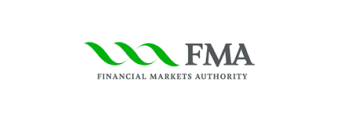
NZ FMA
Who is the NZ FMA?The Financial Markets Authority (FMA) is the New Zealand government agency responsible for enforcing securities, financial reporting and company law as they apply to financial services and securities markets. We also regulate securities exchanges, financial advisers and brokers, auditors, trustees and issuers - including issuers of KiwiSaver and superannuation schemes. New Zealand is a country with a strong economy and legal regulations. Opening a forex brokerage company in New Zealand requires large funds and clear legality. All forex brokers operating in this English common law user countries must be registered in Financial Markets Authority (FMA) regulator.How does the NZ FMA regulate a forex broker?1. Safety of Client Funds:Derivatives issuer must ensure derivatives investor money and property held on trust for investor.2. Requirement on Forex Brokers' Reports:Transaction Reports; Annual Financial Statements (audited); Anti-money laundering Reports; Net Capital Report.
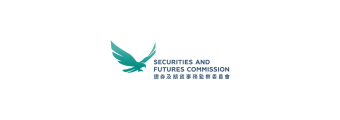
SFC
Who is the SFC?Hong Kong is an established international financial market, where a number of residents are looking to forex trading as a form of investment. Regulated forex brokers in Hong Kong are monitored by the Securities And Futures Commission(SFC), which was created in 1989 in response to the stock market crash of 1987. SFC is an independent statutory body responsible for the securities and futures markets in Hong Kong. It is funded by licensing fees and transaction levies. Its main responsibilities of which cover the supervision of the above said markets, the promoting of a healthy trading environment, customer protection and the showcasing of Hong Kong as an attractive financial market and centre within China. How does the SFC regulate a forex broker?1. Safety of Client Funds:Segregate accounts are required by SFC.2. Requirement on Forex Brokers' Reports:Liquid capital com putation; Required liquid capital computation; Credit facility summary; Margin client analysis; Analysis of securities collateral; Rolling balance cash client analysis; Profit and loss account; Analysis of client assets; Foreign currency position of licensed corporation licensed for leveraged foreign exchange trading; Report on proprietary derivative positions; List of recognized counterparties; Client profile and aggregate net value of assets under management.
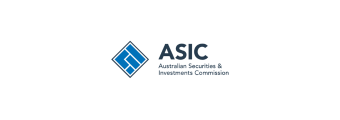
ASIC
Who is the ASIC?Founded in July 1998, the Australian Securities & Investments Commission(ASIC) is now positioned as the national corporate regulator supervising Australia’s corporations, markets, and financial services in accordance with the Australian Securities and Investments Commission Act 2001. ASIC's role is to regulate company and financial services including banks, credit unions and mortgage and finance brokers, and enforce laws to protect Australian consumers, investors and creditors in a bid to create a fair and equitable financial market. To be able to operate in Australia or offer financial services to Australians, brokers are required to hold a valid Australian Financial Services (AFS) licence. The most important reason why a multitude of leading forex brokers choose ASIC as their regulatory agency is that it works to protect their interests. Moreover, the brokers also want to make use of the highly lucrative Australian market. ASIC has become one of the most competent broker regulation standards worldwide. It has quite strict requirements, including risk limitation, bonus prohibition, and consumer enlightenment. However, in recent times ASIC has become the subject of criticism by consumers, consumer advocates and public officials over its inaction and inefficiencies in protecting consumers from large financial instiutions. How does the ASIC regulate a forex broker?1. Safety of Client Funds:A segregated account at a tier 1 bank.2. Requirement on Forex Brokers' Initial Capital: A minimum operational fund of 1 Million USD.3. Requirement on Forex Brokers' Reports:Annual audit report; Monthly income statement; Monthly balance sheet; Daily, monthly and annual customer transaction report.4. Others:A physical office that can be visited in Australia; Risk limitation; Bonus prohibition; Consumer enlightenment.

FSA
Who is the Japan FSA?Forex trading has been very popular in Japan for a long time, but the market remains almost impenetrable to foreign brokers for the tight regulation. Moreover, leverage restrictions are significantly tighter than some of the other major territories.Financial Services Agency(FSA), set up in 2000, is a Japanese government agency and an integrated financial regulator responsible for overseeing banking, securities and exchange, and insurance sectors in order to ensure the stability of the financial system of Japan. The FSA also oversees the Securities and Exchange Surveillance Commission, as well as the Certified Public Accountants and Auditing Oversight Board.The site of FSA provides information about various laws and regulations, measures, regulated institutions, and topical information. In addition, the site also provides annual reports, announcements, and FAQs related to the financial industry.How does the Japan FSA regulate a forex broker?1. Safety of Client Funds:Keeping customer assets separate from properties of a firm.2. Requirement on Forex Brokers' Reports:A business report for each business year; Anti-money laundering Reports; Net Capital Report.

NFA
Who is the NFA?The US regulatory framework is deemed as one of the world’s strictest. US residents and citizens are only permitted to operate with CTFC and NFA regulated foreign exchange brokerages. Firms and individuals, who do not possess the relevant NFA and CTFC regulation, are not allowed to solicit or approach US citizens. This is why many websites (this site included) feature a warning to US visitors, alerting them of the fact that the sites content is not directed towards US residents.The National Futures Association(NFA) is the industrywide, self-regulatory organization for the U.S. derivatives industry, providing innovative and effective regulatory programs.The NFA also works with the Commodity Futures Trading Commission (CFTC). NFA strives every day to safeguard the integrity of the derivatives markets, protect investors and ensure Members meet their regulatory responsibilities.How does the NFA regulate a forex broker?1. Safety of Client Funds:Segregation of Customer Funds(1) All customer funds for trading on designated contract markets (exchanges) must be kept apart ("segregated") from the futures commission merchant's (FCM's) own funds—this includes cash deposits and any securities or other property deposited by such customers to margin or guarantee futures trading.(2) Segregated accounts must be titled for the benefit of the FCM's customers.(3) Acknowledgements must be provided that would preclude a bank or clearinghouse from recognizing a right of offset against the account for the FCM's debts.(4) Customer funds in segregation have a bankruptcy preference in the event COM of FCM insolvency.2. Requirement on Forex Brokers' Reports:Forex Daily Report; Forex Monthly Report; Forex Quarterly Report; Daily Trade Data Reports; Financial Reports (unaudited); Certified Financial Reports (audited); Anti-money laundering Reports; Net Capital Report; Chief Compliance Officer Report.

FCA
Who is the FCA?The Financial Conduct Authority (FCA) in the UK is one of the most reputable regulatory watchdogs in the world for regulating forex brokers and other financial entities. Forex traders would prefer to open trading accounts from FCA regulated forex brokers because of the watchdog’s stringent regulatory laws, protection of client funds and companies insolvency compensation rules etc. After Brexit comes into force, FCA license is only available for UK traders, not for EU clients. Forex companies must get a EU passport if they want to reach EU clients. How does the FCA regulate a forex broker?1. Safety of Client Funds:FCA requires investment companies(including forex brokers) to open segregated accounts for their client funds; from this point, the client funds are protected. The FCA handbook details are as followA firm, on receiving any client money, must promptly place this money into one or more accounts opened with any of the following:(1) a central bank;(2) a CRD credit institution;(3) a bank authorised in a third country;(4) a qualifying money market fund.2. Requirement on Forex Brokers' Reports:Annual accoounts and reports; Annual controllers reporting; Client asset reports; Client money and assets reporting; Market data reporting; Product sales data reporting; Remuneration data reporting; Reporting complaints; Transaction reporting.

FINMA
Who is the FINMA?Swiss Financial Market Supervisory Authority (FINMA) is the most respected regulatory organization in Europe that has managed to reinforce a significant amount of trust among wealthy forex traders and investors from all over the world. FINMA has been granted exclusive powers by the Swiss Government to act as a regulatory watchdog for different types of financial firms that include stock exchanges, stock brokers, forex brokers, banks, insurance companies, securities dealers, fund managers, and any other kind of entity that deals in the financial markets. FINMA’s regulatory framework is designed in such a way that only established and mainstream forex brokers can offer brokerage services under the FINMA license. Therefore, FINMA forex brokers are required by law to be registered as banks, which require a higher amount of operating capital and more restrictions on how they function in the markets. FINMA regulated brokers are also expected to follow the best practices in brokerage services that are devoid of any manipulation or fraudulent practices.How does the FINMA regulate a forex broker?1.Safety of Client Funds:FINMA requires that clients deposited assets, including forex deposits, must be fully segregated. The clients funds under FINMA-regulated forex brokers are guaranteed.2. Requirement on Forex Brokers' Initial Capital:All FINMA forex applicants meet the capital requirement: fully paid-up minium capital of CHF 10 million.3.Requirement on Forex Brokers' Reports:FINMA supervised forex brokers are asked to provide audit report and anti-money laundering report to FINMA.
--No More--
2024 FXOR. All Rights Reserved.
Risk Warning:
FX trading is of high risk and may not be suitable for all investors. Leverage will create additional risks and loss. Before trading, please carefully consider your investment objectives, experience level and risk tolerance. You may lose part or all of your initial investment; do not invest money that you cannot afford. Educate yourself about the risks associated with FX trading. If you have any questions, please consult an independent financial or tax advisor. Any data and information are provided "as is" and only for information purpose, not for trading or recommendations. Past performance does not predict future results.
Business Cooperation

telegram:Please scan the QR code above to contact us.
Email:fxorone@gmail.com




